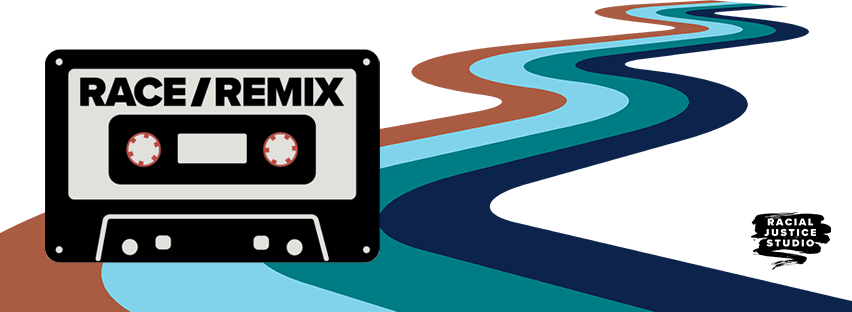Race/Remix, a new podcast produced by the Racial Justice Studio of Arizona Arts, launched with its first three episodes of Season One, featuring Dr. Ruha Benjamin, Silas Munro and members from the Grammy-nominated quintet, Imani Winds.
The podcast explores the creative landscape of racial justice in the arts, building knowledge one conversation at a time. Through deep conversations with guests, the podcast will span topics in media, culture, healthcare, justice systems, immigration, and education. Season One offers critical insights by pairing creators and thinkers across disciplines and ideas.

Episode 1: When Justice Goes Viral – Ruha Benjamin

How can we “act selfishly for our own humanity”? How might we recalibrate institutions, so they reflect how our individual futures are intertwined? Explore these questions and more in a timely discussion with sociologist Dr. Ruha Benjamin, associate professor of African American Studies at Princeton University. She takes on racism in education, healthcare, the arts and beyond in this riveting conversation. Her book, Viral Justice, offers an inspiring vision of change.
Episode 2: A Typeface for Change – Silas Murno

What do iconic movements like women’s suffrage, Civil Rights, queer liberation, and the Vietnam war resistance have in common? They tapped into the power of words and images to convey messages of protest that changed the collective imagination and direction of history. For Silas Munro, faculty co-chair in graphic design at Vermont College of Fine Arts, there is “no shortage of opportunities for design to be part of the conversation of social justice.” In this conversation, Munro discusses the subtle yet powerful techniques of lettering and type to tell new stories that inspire justice. Munro is the author of “Strikethrough: Typographic Messages of Protest.”
Silas Munro | Vermont College of Fine Arts bio
Benjamin and Munro both gave presentations on campus for the Black Faculty Speaker Series, also presented by the Racial Justice Studio, in partnership with the Office of the President.
Episode 3: Restaging Classical Music for Social Relevance – Imani Winds

How are classical musicians speaking to the times in which they live? Band kids turned classical virtuosas, Monica Ellis and Toyin Spellman-Diaz have performed with Imani Winds since its founding more than 25 years ago. True to its beginnings, this predominantly people of color woodwind ensemble continues to break new ground with their socially relevant programming and physically demanding musical repertory. In this episode, they share personal and poignant stories filled with justice-minded strategies that will inspire instrumentalists to compose, collaborate, and commission works of consequence.
Race/Remix is now available on Apple Podcasts, Google Podcasts, YouTube and most podcast platforms worldwide.

Sama Alshaibi is the new Racial Justice Studio director
School of Art Professors Dr. Amelia Kraehe and gloria j. wilson co-founded the studio with Chelsea Farrar, curator of community engagement at the University of Arizona Museum of Art in 2021.
In August of 2023, Regents Professor and Guggenheim Fellow Sama Alshaibi became the new director of the Racial Justice Studio. In this role, Alshaibi will build strategic relationships with artists and academics to advance the study of anti-racism in and through the arts.
“After serving as an inaugural RJS Fellow in 2022-23, Sama Alshaibi is the right person to help lead the Studio from its initial ideation and development phase into the next period of growth,” said Kraehe, associate vice president for equity in the arts. “She is an engaged artist and intellectual who understands the critical role the arts play in local and global movements for racial justice. She brings decades of experience in project management and an expansive creative vision. We have much to look forward to in the years ahead!”
Professor Alshaibi has taught in the School of Art’s Photography, Video and Imaging program since 2006. She recently received the 2023 Betty Parsons Fellowship, supporting a women or female-identified artist, from the Arts Matter Foundation. In 2021, Alshaibi received the Guggenheim Fellowship in photography.
Her experience as an international artist spans museums, galleries, and theaters. Her body of work will be influential in furthering the studio’s mission of creative knowledge generation that illuminates interlocking systems of racialization, including anti-blackness, settler colonialism, and ethnonationalism.
“I am honored to accept this role,” Alshaibi said. “Building on the vital work of the co-founders, RJS endeavors to grow from its aspirational identity towards a platform that champions inclusion, diversity, equity, and arts advocacy within and beyond higher education.
“Race/Remix directs the power of conversation by joining the voices of creatives and scholars in a dynamic, intimate, and necessary forum,” she said. “Grounded in the spirit of a research university, in which ingenuity and experimentation serve our greater purpose, we challenge ourselves to develop programming and initiatives that lift under-represented voices while understanding everyone has a place in making the arts and academia accessible for all.”
Co-founder Farrar has resumed her full-time work of directing Mapping Q and other community-engagement programs at the University of Arizona Museum of Art. Farrar is confident in the next phase of RJS leadership.
“I am honored to have had the chance to work alongside incredible educators like Drs. gloria wilson and Amy Kraehe. And I am excited for the contributions and critical perspectives that Sama Alshaibi will make and look forward to continuing a close partnership with Racial Justice Studio.”
